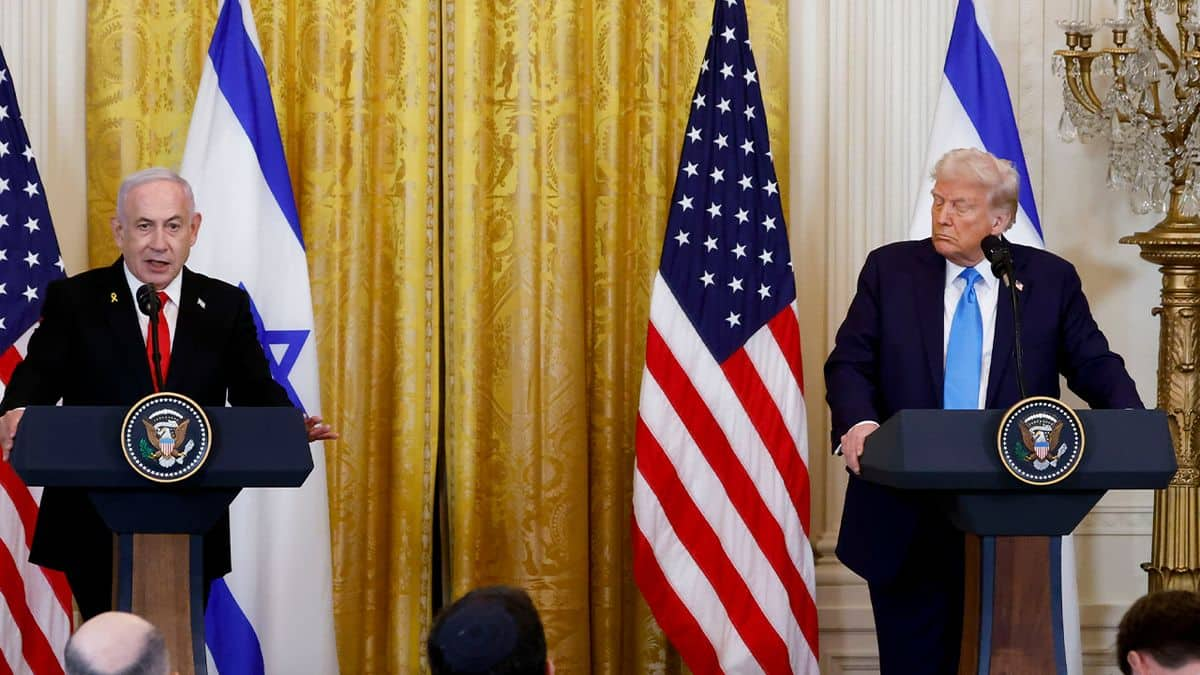
'US will take over Gaza Strip': Trump after meeting Netanyahu
What's the story
United States President Donald Trump has announced plans for the US to "take over and own" the Gaza Strip.
The announcement came during a joint press conference with Israeli Prime Minister Benjamin Netanyahu on Tuesday.
Trump said the US would be responsible for dismantling unexploded bombs and other weapons in Gaza.
He also outlined plans to economically develop the area after clearing out destroyed buildings.
Strategy talks
Trump, Netanyahu discuss strategies to eliminate Hamas
During a closed-door meeting, Trump and Netanyahu reportedly discussed ways to wipe out Hamas and restore peace in the region.
The US President slammed his predecessor Joe Biden, claiming that "nobody did anything for four years" in the Middle East other than show incompetence.
He also implied that Egypt and Jordan would take in Palestinians from Gaza despite their protests, saying "They say they're not going to accept—I say they will."
Policy shift
Trump hints at reconsidering independent Palestine
Notably, the meeting with Netanyahu was Trump's first with a foreign leader at the White House since returning to office.
He hinted at reconsidering an independent Palestine as part of a two-state solution, acknowledging that "a lot of plans change with time."
The future of the Gaza cease-fire was also a key topic in their discussions, with Trump expressing uncertainty about its prospects but emphasizing not letting the Gaza war prolong during his presidency.
Internal pressures
Netanyahu under pressure to continue operations against Hamas
According to reports, Netanyahu's government is split on whether to conclude military operations in Gaza with Hamas weakened.
The Israeli leader has been under pressure from his Likud party not to stop operations against Hamas entirely.
However, he could extend the cease-fire in return for US efforts to rein in Iran's regional influence and nuclear ambitions.
Both leaders share a vision of normalizing ties between Israel and Saudi Arabia, which could reshape Middle East diplomacy.